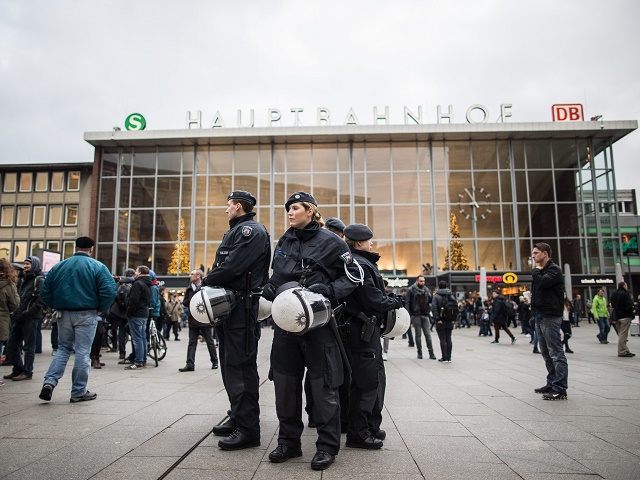Cologne is on high alert ahead of its giant carnival festivities since a shocking spate of sexual assaults, with German authorities anxious to prevent a repeat of the rampage and ward off potential jihadist attacks.
Police in the western German city have been struggling to restore public confidence after it emerged that hundreds of women were groped and robbed in a mob of mostly North African and Arab men during New Year’s celebrations.
Around 1,000 complaints have been filed over the crime spree that has also ignited an intense debate about Germany’s ability to integrate 1.1 million asylum seekers it took in last year.
The carnival festivities kick off on Thursday with street parties — a week-long binge of beer, song and dance by revellers in fancy dress — and run through Ash Wednesday on February 10.
In the run-up to carnival, German authorities are determined to put on a good show.
Some 2,500 police officers have been called in to patrol the streets, three times as many as last year, as the security budget reached 360,000 euros ($390,000).
Closed-circuit television cameras have been installed and bans imposed on known petty thieves, including suspected pickpockets who took part in the crime spree on New Year’s Eve.
Cologne is on high alert ahead of its giant carnival festivities since a shocking spate of sexual assaults, with German authorities anxious to prevent a repeat of the rampage and ward off potential jihadist attacks.
Police in the western German city have been struggling to restore public confidence after it emerged that hundreds of women were groped and robbed in a mob of mostly North African and Arab men during New Year’s celebrations.
Around 1,000 complaints have been filed over the crime spree that has also ignited an intense debate about Germany’s ability to integrate 1.1 million asylum seekers it took in last year.
The carnival festivities kick off on Thursday with street parties — a week-long binge of beer, song and dance by revellers in fancy dress — and run through Ash Wednesday on February 10.
In the run-up to carnival, German authorities are determined to put on a good show.
Some 2,500 police officers have been called in to patrol the streets, three times as many as last year, as the security budget reached 360,000 euros ($390,000).
Closed-circuit television cameras have been installed and bans imposed on known petty thieves, including suspected pickpockets who took part in the crime spree on New Year’s Eve.
Security forces are also battling to prevent a possible terror attack, with Germany’s domestic intelligence chief Hans-Georg Maassen reiterating in a report that the situation remained serious after the Paris jihadist atrocities in November.
The wider area around Cologne in North Rhine-Westphalia state is home to Germany’s biggest concentration of radical Islamists.
It is also where the man who tried to attack a Paris police station on January 7 lived.
The attacker, identified as Tarek Belgacem by Tunisian authorities, was shot dead by French police as he attempted his assault on the one-year anniversary of the jihadist attack on satirical weekly Charlie Hebdo in Paris.
He had lived at an asylum-seeker shelter in Recklinghausen, said German police, who however found that he was not linked to any Islamist networks.
Underlining the nervousness surrounding potential threats, Cologne’s police chief Juergen Mathies “strongly discouraged” revellers from “dressing up as jihadists or from carrying weapons that you are unable to tell whether they are real or not”.
Authorities were apparently not taking any chances, and had even issued a public alert after a man of “Middle Eastern appearance” bought chemicals that could be used to make improvised explosives in a hardware store.
That eventually turned out to be a case of a drug-making home factory rather than explosives.
But it illustrated the jitters since the November Paris attacks in which Islamic State gunmen and suicide bombers attacked Paris nightspots, killing 130 people.
Since those attacks, German authorities have issued terrorism alerts on several occasions, calling off a Germany-Netherlands football match in November and closing several Munich subway stations on New Year’s Eve.
Despite the fears, Chancellor Angela Merkel herself urged revellers not to shy away.
“Because we’re going to show that we won’t let anyone keep us from enjoying life or having fun,” she said.
“We love our freedom, our freedom of expression and especially our freedom to have fun.”

COMMENTS
Please let us know if you're having issues with commenting.